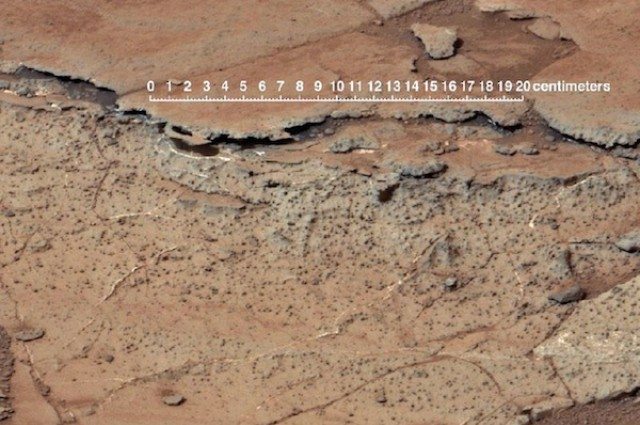Geologists Say that Earth-like Soils on Mars Could Lead to Microbial Life Discovery
Gabriel Roşu / 10 years ago

Some geologists have analysed a few sample images captured by the ‘Curiosity’ rover from Mars and tell that there might be Earth-like soils on the red planet. The images show that there might be some ancient fossilized soils deep within an impact crater, which could eventually lead to the discovery of microbial life.
While Mars is filled with landscapes resembling catastrophic floods and rocks from impact craters, there might be signs of smooth soils and soften terrain, much like we have on Earth. Gregory Retallack from the University of Oregon has apparently analysed the mineral and chemical data from Curiosity, leading to the discovery of such soils we are used to stepping on for thousands of years.
The professors states that soils from Gale Crater, dating back to 3.7 billion years ago, appear to have cracked surfaces lined with sulfate and vesicular hollows, both features of soils found on desert terrains on Earth. In addition, the sulphate concentration are said to be comparable with Antarctic Dry Valleys and Chile’s Atacama Desert.
“The pictures were the first clue, but then all the data really nailed it,” Retallack says in a news release. “The new data show clear chemical weathering trends, and clay accumulation at the expense of the mineral olivine, as expected in soils on Earth […] Phosphorus depletion within the profiles is especially tantalizing, because it attributed to microbial activity on Earth.”
Th new soils discovered are said to offer more insight on habitable conditions previously found on Mars. Also, having them date back 3.7 billion years ago tends to put Mars’ water cycle at around the same time as the Earth started diversifying. Further studies are said to take place on geologically younger layers within craters in order to learn the planet’s life story.
Thank you IFLScience for providing us with this information
Image courtesy of IFLScience



















